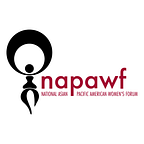By Sung Yeon Choimorrow, Executive Director of the National Asian Pacific American Women’s Forum
I am not your model minority. As an Asian American and Pacific Islander (AAPI) woman, I have been subject to the stereotypes of being docile, subservient, and compliant. More times than I can count, I’ve been on the receiving end of microaggressions like “You’re so articulate” to outwardly xenophobic comments like “Go back to where you came from” (even though I am American).
I am AAPI, a woman, an immigrant, a mother, and a member of the faith community. At this point in history, as it has been for many decades, my many identities are simultaneously ignored, or worse, under attack.
For AAPI women, we have to push 10 times as hard to be visible. And in the push to safeguard our reproductive health and rights, it has historically been an uphill climb. Sex-selective abortion bans, which open the door to racial profiling of AAPIs, have been proposed in 31 states under the guise of stopping a problem that does not even exist. But in reality, they are rooted in racist assumptions of AAPI women ending pregnancies for preference of sons. In fact, AAPIs are actually having more girl babies on average than white women are. Prenatal Nondiscrimination Acts (PRENDAs) would only move these harmful policies to the federal level.
In building power with AAPI women and girls, we have tirelessly fought back against attacks on our agency, attacks on immigrant families, and attempts to keep us in poverty. As the fastest growing racial group in the United States, having grown 72% between 2000 and 2015, AAPIs aren’t staying quiet. We are fighting for political power and financial resources, especially against those who seek to silence and disenfranchise us. For example, in the 2018 elections, Asian American voters shifted progressive more than any other voters of color. We are building a progressive base that mirrors the leadership, values, and priorities that we want to see at the local and federal levels.
That’s why at the National Asian Pacific American Women’s Forum (NAPAWF), we are stepping into our power with the Power Up Conference this week. Over 100 AAPI women and girls have gathered to build community, break down silos, and push back against policies and systems that limit our freedoms. Dismantling the false divisions between reproductive rights and health, immigrant rights, and economic justice, we use an intersectional lens to demonstrate to leaders from across the nation the real solutions that we deserve, so that we can thrive.
By embracing the NAPAWF motto, “Be seen, be heard, be fierce,” we commit to defining ourselves on our own terms and uplifting our lived experiences so that those who wish to silence us can no longer ignore us. Local, state, and national legislators cannot ignore us as we launch our AAPI Agenda for Action: an intersectional plan in which we make it known what AAPI women and girls stand for. We will center ourselves on the political stage (literally) as we take on Capitol Hill to advocate for abortion coverage and immigrant access to health care alongside roughly 300 women of color who have come to hold the decisionmakers we put into power in 2018 accountable for our lives, our families, and our communities.
Each of our identities is part of a larger intersectional struggle toward reproductive freedom: having choices and making decisions about our lives, families, and communities with dignity, safety, and autonomy — with no strings attached. Everyone deserves the tools, resources, and freedom to navigate their reproductive decisions, regardless of race, gender identity, income, or immigration status. That’s why I refuse to be anyone’s model minority, scapegoat, or wedge during a time when our existence and well-being are constantly under threat. We must take bold action to answer the call of visibility, agency, and justice for AAPI women and girls nationwide.
